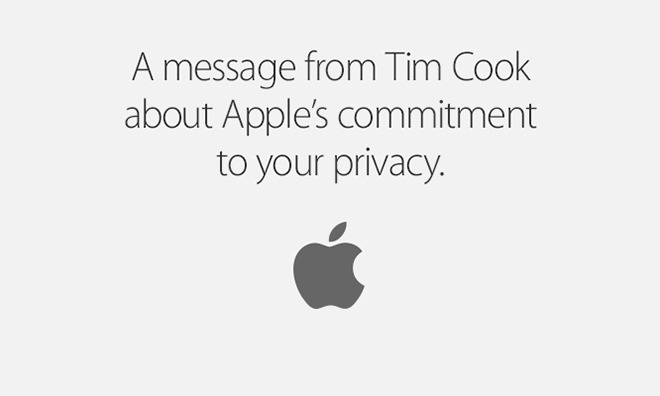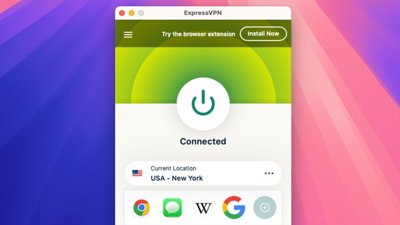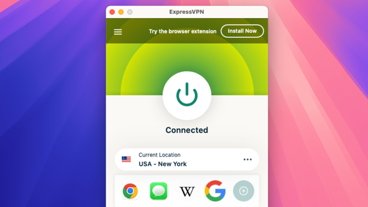At the China Development Forum this weekend, Apple CEO Tim Cook spoke about Facebook's misuse of customer data, and sounded the call for stricter rules across the board on what companies are allowed to do with harvested information.
First reported by Bloomberg on early Saturday morning, Cook was asked at a discussion about the Cambridge Analytica debacle, and if the use of consumer data should be dialed back as a result.
"I think that this certain situation is so dire and has become so large that probably some well-crafted regulation is necessary," said Cook. "The ability of anyone to know what you've been browsing about for years, who your contacts are, who their contacts are, things you like and dislike and every intimate detail of your life — from my own point of view it shouldn't exist."
Cook noted that Apple had been aware of the possibility of misuse of consumer data for a long time.
"We've worried for a number of years that people in many countries were giving up data probably without knowing fully what they were doing and that these detailed profiles that were being built of them," added Cook. "That one day, something would occur and people would be incredibly offended by what had been done without them being aware of it. Unfortunately that prediction has come true more than once."
Cook has notably in the past obliquely referred to companies' use of consumer data, noting that if a product was free, then the consumer — and all associated data — was the product paying for the service.
The FTC is probing Facebook following the revelation that the UK-based Cambridge Analytica acquired the data of as many as 50 million Facebook users, reports Bloomberg, which may have been misused to influence a number of political events world-wide.
In a post on March 21, Facebook CEO Mark Zuckerberg explained that Aleksandr Kogan, the researcher at the center of the scandal, had accessed data of 300,000 Facebook users with permission when he created a personality quiz back in 2013. In doing so, the users who took the poll gave up information on millions of connections without their permission with an academic account, and not a commercial one.
Kogan shared that harvested data with Cambridge Analytica, with some debate over whether or not Cambridge Analytica deleted the data even after promising Facebook that it had done so.
In the wake of the revelations, Facebook suspended Cambridge Analytica and parent company Strategic Communications Laboratories for violating the site's Terms of Service, specifically rules about the collection and retention of data.
Cook also spoke out in the wake of a series of hacks in 2014, and detailed Apple's stance on user data and privacy.
"Our business model is very straightforward: We sell great products. We don't build a profile based on your email content or web browsing habits to sell to advertisers. We don't 'monetize' the information you store on your iPhone or in iCloud. And we don't read your email or your messages to get information to market to you," Cook wrote in an open letter to customers. "Our software and services are designed to make our devices better. Plain and simple."
 Mike Wuerthele
Mike Wuerthele







-m.jpg)






 Christine McKee
Christine McKee
 Chip Loder
Chip Loder
 Malcolm Owen
Malcolm Owen
 Marko Zivkovic
Marko Zivkovic
 Wesley Hilliard
Wesley Hilliard







-m.jpg)




64 Comments
Yesterday was one of the heaviest moderated days for breaking the forum rules since we updated them.
So, as a reminder, we didn't make this political, and neither will you. Read the commenting guidelines if you need clarification on it. If you want to know why we have the rules and enforce them, please feel free to shoot me a civil message, and we can talk.
This is about Facebook, Cambridge Analytica's misuse of the data, and Cook's response.
If you have not listen to the Apple insider pod cast on this subject, you should.
Everyone wants too blame Facebook since it is easier to blame someone else, but most need to look no further than their own mirror. I never bought in to the Facebook thing and always felt it would be bad. I also valued my privacy over getting free things.
I learned a few things from the pod cast, basically anyone who is pissed off your own information may have been used against you, you have to remember you got something free and you gave facebook the right to use your information the way they like. They never had to ask you if it was okay to allow third parts to use your information, you gave up that right by creating that account.
If you want to protect your information. Then stop using free stuff, and pay for your services.
FB doesn’t sell great products to consumers, it sells consumers’ data to corporate entities. So it would seem any regulations on that would more or less impede FB’s business model. It’s about time, I say. I don’t think FB is heading towards total transparency anytime soon.
I agree that legislation is the way. However, it has to be good legislation with clearly defined goals.